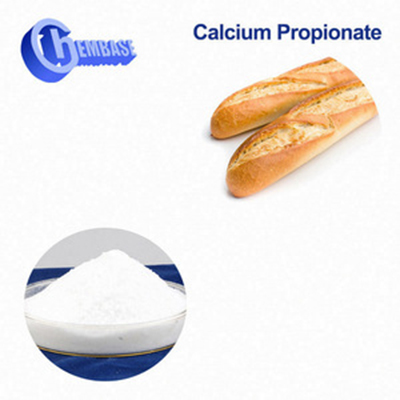
3. A popular food ingredient raises the risk for diabetes |

![]() Consumption of propionate, a food ingredient that's widely used in baked goods, animal feeds, and artificial flavorings, appears to increase levels of several hormones that are associated with risk of obesity and diabetes, according to new research led by Harvard T.H. Chan School of Public Health in collaboration with researchers from Brigham and Women's Hospital and Sheba Medical Center in Israel.
Consumption of propionate, a food ingredient that's widely used in baked goods, animal feeds, and artificial flavorings, appears to increase levels of several hormones that are associated with risk of obesity and diabetes, according to new research led by Harvard T.H. Chan School of Public Health in collaboration with researchers from Brigham and Women's Hospital and Sheba Medical Center in Israel.
![]() The findings also showed that in mice, chronic exposure to propionate resulted in weight gain and insulin resistance. The study was published in Science Translational Medicine.
Understanding how ingredients in food affect the body's metabolism at the molecular and cellular level could help us develop simple but effective measures to tackle the dual epidemics of obesity and diabetes.
The findings also showed that in mice, chronic exposure to propionate resulted in weight gain and insulin resistance. The study was published in Science Translational Medicine.
Understanding how ingredients in food affect the body's metabolism at the molecular and cellular level could help us develop simple but effective measures to tackle the dual epidemics of obesity and diabetes.
![]() For this study, the researchers focused on propionate, a naturally occurring short-chain fatty acid that helps prevents mold from forming on foods. They first administered this short chain fatty acid to mice and found that it rapidly activated the sympathetic nervous system, which led to a surge in hormones, including glucagon, norepinephrine, and a newly discovered gluconeogenic hormone called fatty acid-binding protein 4 (FABP4). This in turn led the mice to produce more glucose from their liver cells, leading to hyperglycemia -- a defining trait of diabetes. Moreover, the researchers found that chronic treatment of mice with a dose of propionate that was equivalent to the amount typically consumed by humans led to significant weight gain in the mice, as well as insulin resistance.
To determine how the findings in mice may translate to humans, the researchers established a double-blinded placebo-controlled study that included 14 healthy participants. The researchers found that people who consumed the meal containing propionate had significant increases in norepinephrine as well as increases in glucagon and FABP4 soon after eating the meal. The findings indicate that propionate may act as a "metabolic disruptor" that potentially increases the risk for diabetes and obesity in humans.
For this study, the researchers focused on propionate, a naturally occurring short-chain fatty acid that helps prevents mold from forming on foods. They first administered this short chain fatty acid to mice and found that it rapidly activated the sympathetic nervous system, which led to a surge in hormones, including glucagon, norepinephrine, and a newly discovered gluconeogenic hormone called fatty acid-binding protein 4 (FABP4). This in turn led the mice to produce more glucose from their liver cells, leading to hyperglycemia -- a defining trait of diabetes. Moreover, the researchers found that chronic treatment of mice with a dose of propionate that was equivalent to the amount typically consumed by humans led to significant weight gain in the mice, as well as insulin resistance.
To determine how the findings in mice may translate to humans, the researchers established a double-blinded placebo-controlled study that included 14 healthy participants. The researchers found that people who consumed the meal containing propionate had significant increases in norepinephrine as well as increases in glucagon and FABP4 soon after eating the meal. The findings indicate that propionate may act as a "metabolic disruptor" that potentially increases the risk for diabetes and obesity in humans.
For enquiries info@jothydev.net.
Please visit: jothydev.net | research.jothydev.com | diabscreenkerala.net | jothydev.com/newsletter
